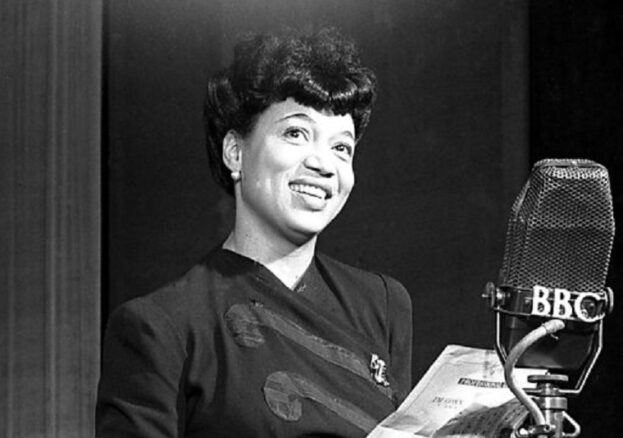
Elisabeth Welch was born on February 27, 1904, in New York City. Her mother was of African-American and Native American descent, and her father was a Caribbean-born cabaret singer. Welch grew up in a family of performers, and she began singing and dancing at a young age.
In the 1920s, Welch began performing in black vaudeville shows and cabarets in New York City. She quickly gained a reputation for her beautiful voice and her ability to connect with audiences. She performed alongside other black entertainers of the time, including Josephine Baker, Paul Robeson, and Ethel Waters.
Welch’s career took off in the 1930s when she began appearing in Broadway musicals. She appeared in “Run, Little Chillun” in 1933, which was one of the first Broadway shows to feature an all-black cast. Welch’s performance in the show was widely praised, and she went on to appear in several other Broadway productions, including “Blackbirds of 1939” and “Swingin’ the Dream” (1939).
In 1934, Welch moved to London, England, and quickly became one of the most popular performers on the British stage. She appeared in numerous productions, including “The Swing Mikado” (1939), “Valmouth” (1950), and “Kiss Me, Kate” (1951).
Welch was known for her beautiful singing voice and her ability to connect with audiences through her performances. She also appeared in several films, including “The Importance of Being Earnest” (1952) and “Oliver!” (1968).
In addition to her work in entertainment, Welch was also a dedicated civil rights activist. She worked with the National Association for the Advancement of Coloured People (NAACP) and was involved in several campaigns to promote racial equality. Welch was also a supporter of the anti-apartheid movement in South Africa.
Welch continued to perform well into her 90s, and she was awarded the Order of the British Empire in 1990 for her contributions to the arts. She passed away on July 15, 2003, at the age of 99.
In addition to her work in entertainment, Welch was also a dedicated civil rights activist. She worked with the National Association for the Advancement of Coloured People (NAACP) and was involved in several campaigns to promote racial equality. Welch was also a supporter of the anti-apartheid movement in South Africa.
Welch was also involved in several charitable causes throughout her life. She worked with the British Red Cross and was a supporter of numerous charities dedicated to helping disadvantaged children.
Welch continued to perform well into her 90s, and she was awarded the Order of the British Empire in 1990 for her contributions to the arts. She passed away on July 15, 2003, at the age of 99.
In 2021, a blue plaque was unveiled in London to commemorate Welch’s contributions to the arts. The plaque is located at the site of the former Strand Palace Hotel, where Welch performed during her time in London. The plaque reads: “Elisabeth Welch, 1904-2003, Singer, Actress and Entertainer, lived here, 1934-1940. Pioneer black artist, celebrated for her voice and glamour.”
Despite facing discrimination and racism throughout her career, Welch was a trailblazer for black performers in both the United States and the United Kingdom. Her legacy continues to inspire performers of all backgrounds today.
